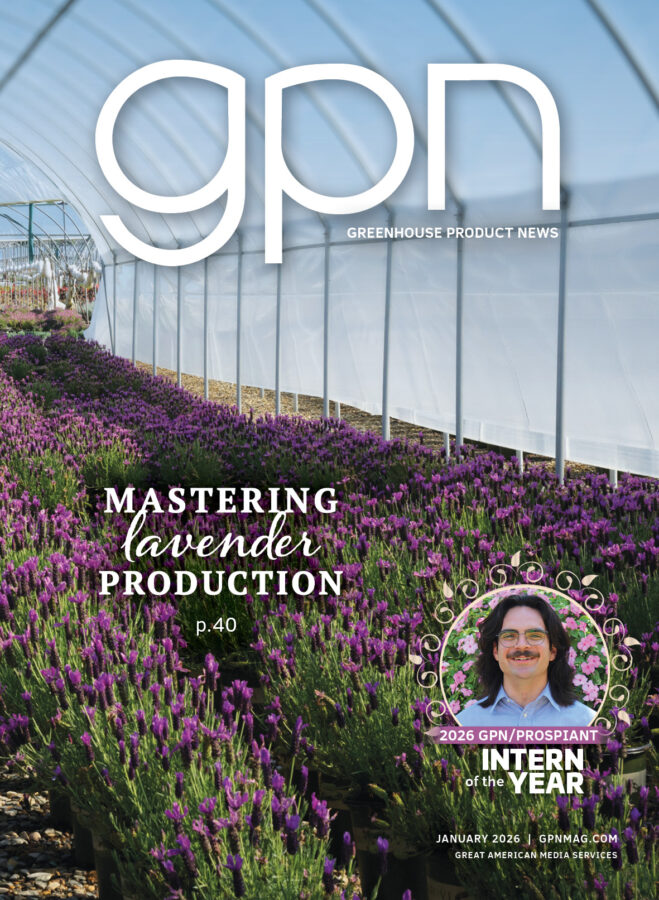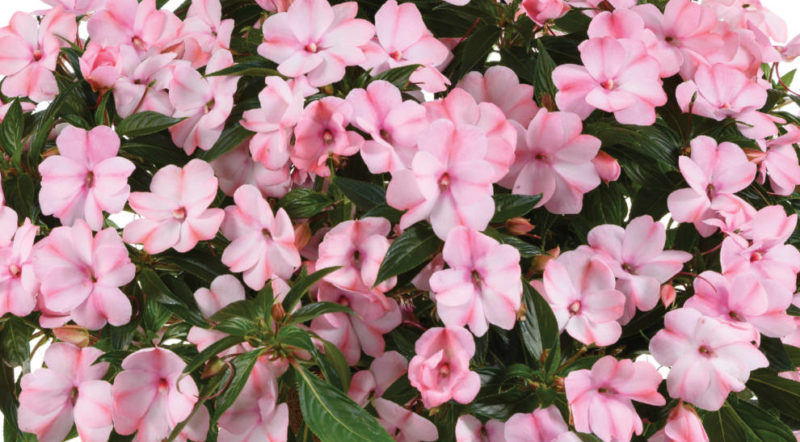
Culture Report: New Guinea Impatiens Harmony Colorfall Series
Harmony Colorfall is a true trailing New Guinea impatiens that is bred and selected for its ability to make a beautiful hanging basket. These varieties are well suited for 10-inch or larger baskets and patio pots. At maturity, they will trail with a waterfall of color. It also has great performance when planted in the landscape.
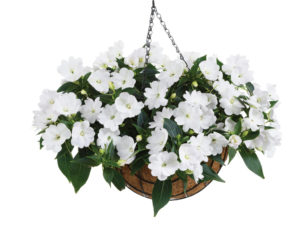
The series is bred for controlled growth. This means it will flower early enough so that it is just coming to the edge of the pot for profitable shipping to market but will continue to grow and bring value for the end consumer. Another advantage with this series is it is less salt sensitive than regular New Guinea impatiens. This is important for growers since Harmony Colorfall hanging baskets are less likely to need leaching when they are positioned over other crops. This avoids damaging the crop below with washouts or fertilizer build up.
Large flowers will blanket these plants due to the abundant branching, which occurs naturally without the need for a pinch or chemical application to achieve the full, desired look. Harmony Colorfall is a good candidate for a low-input basket or container. Grower trials have been successful with one plant per 10-inch basket with no additional crop time. Danziger suggests your own production trial prior to a large program with low inputs.
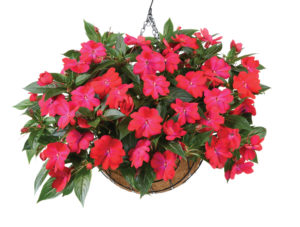
Harmony Colorfall is currently available in four colors — Neon Red, Light Coral, Pink and White. Breeding in the series is intense and the coming years will bring additions including unique bicolor bloom patterns. Harmony Colorfall will add bright color to areas with shade to partial sun, making it the perfect item for a premium shade basket or patio pot program.
ROOTING
New Guinea impatiens should be rooted in a well-drained, sterile media and can be produced in many different liner trays. This series is a good candidate for direct stick programs. They will perform in many different media options including peat-based mixes, Jiffy Preforma and Oasis.
Stick one cutting per cell, and place directly under mist. Frequency of mist should be enough to keep newly stuck cuttings turgid but try to avoid over misting. The day after sticking, a spray to protect against Botrytis is recommended, possibly chlorothalonil. This preventative spray is important because Botrytis can become active in just three hours once given optimum environmental conditions.
Additionally, a spray of ethephon (Florel) at 300 ppm will set all the cuttings to flower at the same time. The Florel application can take place in the morning the day after sticking. Leave the mist off for 30 to 60 minutes after the application to allow the spray to dry. Rooting should be complete at four weeks under recommended rooting temperature of 72° F.
pH AND EC
New Guinea impatiens will grow well in a relatively wide pH range, although 5.6 to 6.2 is the sweet spot. Regular testing is recommended to monitor both EC and pH. New Guinea impatiens in general are sensitive to high EC. Signs of damage from a high EC will be curled leaves, stunted growth and “stuck buds” that will not open. To avoid this, we recommend an EC of 0.80 to 0.90, based on a 3-to-1 (water to soil) test.
LIGHT AND TEMPERATURE
Harmony Colorfall grows and flowers based on time and temperature. Supplemental lighting will not be needed to root and finish. Warmer temperatures equate to plant development. Therefore, if you want to finish the crop faster, add more heat. A New Guinea crop can be finished in 12 weeks from sticking at an average daily temperature of 72° F. At an average daily temperature of 68° F, add two weeks to the finish time.
PGRS
Harmony Colorfall can finish to a desirable size without PGRs. If needed, they will respond well to a paclobutrazol drench at a low rate of 0.10 to 0.25 ppm. Sumagic also is effective. Always follow label directions.
FERTILIZER
The formulation of the fertilizer used should be based on the alkalinity, pH and quality of your water. A basic feed is best when your water allows. If you have to use an acid feed like 20-10-20 to lower your soil pH, you may need to alternate with a calcium-based feed at a ratio of three acidic to one basic application. New Guinea impatiens are successfully grown at a low fertility rate. We recommend a constant feed at 0.80 to 1.0-ppm nitrogen. Remember, as mentioned before, New Guinea impatiens can be salt sensitive.








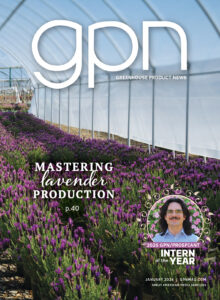
 Video Library
Video Library 

















